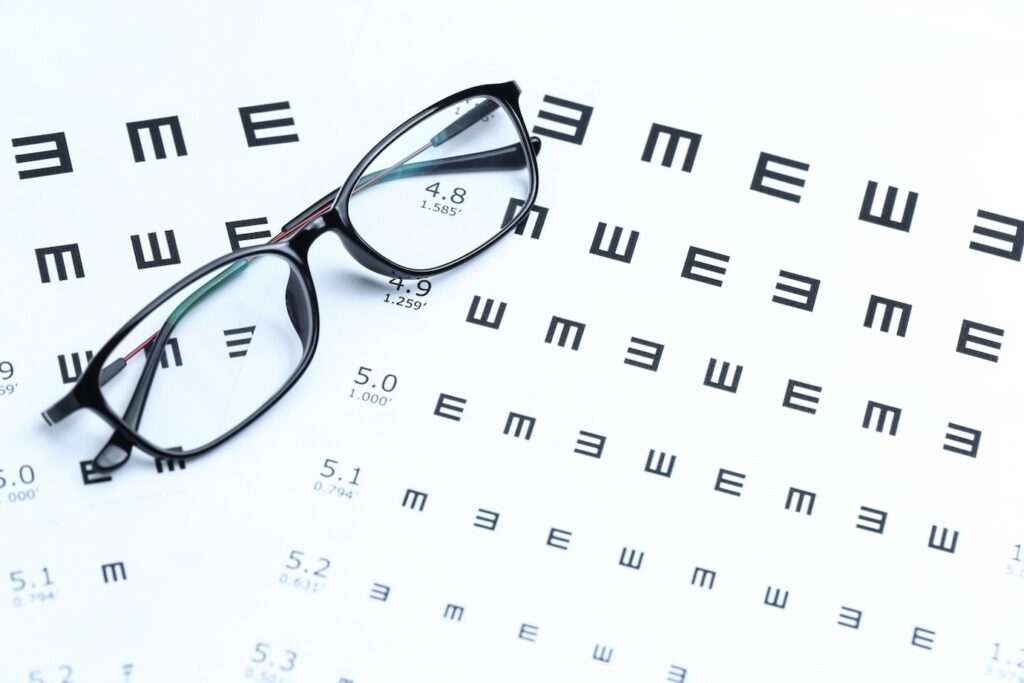HOW LONG DOES IT TAKE FOR YOUR EYES TO ADJUST TO NEW GLASSES PRESCRIPTION?
In much the same way that trying on a new outfit or slipping on new shoes can be an exciting experience, donning a new pair of prescription glasses can lead to a transformation in the way you look as you discover how it will change your appearance.
It is natural that new eyewear requires a period of adjustment before you are fully able to enjoy them. This adjustment period is completely normal, and you will soon find yourself wondering how you survived without them.
There is a possibility that it may take up to two weeks to adapt to your new prescription glasses, as your eyes and brain adjust to the lenses.
It is recommended that you visit your optician after this period to ensure your eyes have properly adapted to your new glasses. If you are experiencing problems, it may be necessary for your eyes to be assessed further.
In the event that your prescription has been considerably altered or you have been prescribed any of the following medications, this timeframe may differ slightly.
-
Prescription glasses for the first time
-
Changing to progressive lenses
-
The use of bifocal lenses
-
The use of varifocal lenses
When adjusting to my new glasses, what other factors should I consider?
There is no doubt that switching to a different frame style can also be a challenge. The frames will feel different on your face, but the lenses may also change, depending on the frame style.
You may need to adjust your eyes if you choose a wide rectangular frame over your usual small round frame, and vice versa. The same holds true if you choose larger frames, as they may affect your peripheral vision.
What is the cause of the blurriness in my new glasses?
Things may seem disconcerting until you become comfortable with your new prescription glasses. You may notice that your new glasses don’t correct your vision as well as your old ones, however, this should not cause immediate concern. This is simply an adjustment period for your eyes.
Please note that even minor adjustments to your prescription may result in a change in the quality of your initial vision when you first wear your new glasses.
You should also keep in mind that your eyes change over time as they age or react to changes in your environment such as brighter or lower levels of light. These factors may impact your ability to see objects clearly.
Do my new glasses cause headaches?
In the early phases of wearing your new glasses, you may experience some vision problems, such as headaches. If your new glasses do cause headaches, you should consult your optician.
During the adjustment period, you may encounter the following issues:
-
Eyestrain
-
Distortion
-
Fishbowl (when an image appears clear in the middle but bent at the edges)
-
Depth perception
How can I help my eyes adjust to new glasses?
Changing to a new pair of glasses isn’t difficult, as long as you wear them as much as possible. Your eyes and brain will need time to adjust to the new image, accepting its sharpness or vividness.
When you adapt to your first pair of glasses or a drastic change in prescription, it is most likely that your brain requires additional time to adjust to this “new normal”.
When you first wake up, putting on your new glasses is an effective way to help adapt your vision, since your eyes are freshest at this time. Waiting a couple of hours before donning your glasses can lead to adverse effects later in the day.
Should I switch back to my old glasses if I am having difficulty adjusting to my new ones?
If you switch back to your old eyewear, you may delay the adjustment process. Wearing your new prescription glasses will help your eyes adjust.
In the event that you are still having difficulty adjusting to your new glasses after two or three days, consult your optician since a faulty prescription might be the cause. If this is the case, your eyes may not be able to adjust properly to your new glasses.
Even with the aid of computer-controlled lens creation, human error can sometimes result in incorrect prescriptions. Despite the utmost caution being observed during measurement, human error can sometimes occur.
Safety comes first
It is important to use extra caution when performing certain tasks while you are adjusting to a new pair of glasses. When driving, walking on stairs or uneven ground, working with dangerous machinery, or completing tasks requiring concentration and good vision, exercise caution.
















